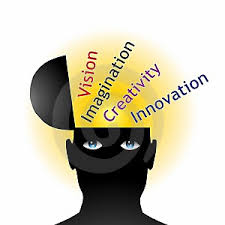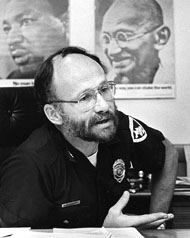 If you have followed this blog over the past four years I hope you will come to understand the great love I have for the practice of policing a democracy such as ours.
If you have followed this blog over the past four years I hope you will come to understand the great love I have for the practice of policing a democracy such as ours.
To some, I have been overly critical of today’s police; but to others, not critical enough — the challenging task of a commentator.
Years ago, I studied the history of professionalization; how a craft or trade became a profession. I remember the important highlights of a profession: an agreed-upon, body of knowledge, a lengthy preparation before practice, a code of conduct, licensing, and oversight.
There also became a time during the movement from craft to profession when those who did not meet the requirements were no longer permitted to practice. As an example, many barbers once did minor surgeries. When the profession of medicine moved forward, barbers were no longer permitted to do so. (See “How Barbers Became Surgeons.“)
Could this not apply to police? That we set professional standards with regard to their education and training, license them, approve their code of conduct, and have professional boards of review as other professions do? If we raised the bar concerning the practice of policing, how might that be carried out? Would we have a better police?
First, let’s try and make some sense out of the crisis our nation’s police now find themselves and whether or not the craft of policing should become a profession.
- This must first be understood: if police choose to remain isolated and defensive, all will be lost.
And what we, as a nation, will end up with is a distant, unconnected police who will tend to be oppressive, explosive, and isolated. In this negative scenario, police services will be provided for the “haves” at the expense of those who “have not”. That, of course, is not democratic policing nor the way to deliver police services in a free society.
The way out this crisis, as I have exhaustively said in earlier posts, is for police to move closer to those whom they serve, be unconditionally respectful and transparent in what they do, limit their use of physical force in carrying out their duties, and develop a service philosophy and methods of less-than-deadly firearms use.
Now this will take a special police, a “professional” police, consisting of educated, well-trained, honest, controlled men and women who are committed to working closely with neighborhood residents in the control of crime and other disorder.
This model of policing will require police officers to be leaders in their community and, in effect, “social workers in blue.” This means, for example:
- Helping schools be more effective in graduating boys and girls of color.
- Making sure the entire criminal justice system is fair, effective, and restorative.
- Supporting alternatives to prison and assist in helping correct those who have been imprisoned.
- Supporting community efforts to create jobs and living wages.
- Speaking out about gun violence and our need to control firearms.
This will take new and creative thinking that discards the military-like “warrior cop attitude” and puts on the new police role of guardian and protector – being, in effect, a “servant leader.”
It will mean a strong commitment to the preservation of life and respect for the dignity of every human person regardless of color, race, gender, ethnicity, sexual orientation, or socio-economic status.
Is this an unrealistic dream? Time will tell, but I have strongly held this dream for over half a century.
Will it one day be realized? Only those who are in the ranks of police today, and those who are completing their educations with the goal of becoming such a police officer, will be able to make this happen.
I say this because the transformation I am talking about will not come through police oversight meetings, community action, or even legislation. It will only come through police collectively coming to understand that this is how police in a democracy are to work and embrace that role. Why is that? Because the nature of the police subculture is such that lasting change and improvement can only come from the inside out. Sorry. But that’s what I believe.
When police work in this new way they are more effective, respected, and their work safer because they have legitimacy, authorization, and support from those whom they serve. This style of policing makes sense all around. Implementing change through fear and threat has never worked very well anywhere; especially in America.
In our society “we the people” works; working together for a common goal and, with regard to policing, embracing the idea that “the police are the people and people are the police.”
This I believe: If today’s police are to find their way it will have be the result of them finding their way rather than law-makers or social activists telling what to do.
I have outlined the moral decision they must make.
Our future as a free society depends on our police making the right choice. Let’s support them in doing so.


Reblogged this on e-Roll Call Magazine.
LikeLike
We must be the polar opposite of the model you have in the US. Throw your weight around without the consent of the vast majority in the community and you and all you stand for are a busted flush on an island. Pop over some time and take a look.
LikeLike
I am afraid that;s so… a lot of my ideas came from a study I did of European police in the early 70s when I was on leave from the PD and just finishing up my master’s degree.
LikeLike
The cops are throwing their weight around wihout the consent of the vast majority of the community and they really don’t care about the communities they serve.
LikeLike
It certainly seems like there is greater instance of that in the US
LikeLike
Sounds like it’s all coming together for you….
Great work, brings some hope for change as the debate rolls on and our eyes are open to new possibilities… much better than the pressure to keep silent and don’t you dare criticize the police or governments that to them would be considered disloyal, later
LikeLike
1. We are a Republic not a Democracy. Not important to this discussion but always annoys me when over educated, self promoting bloggers mis-use and interchange those terms.
2. Police not caring for our communities is painting us with a pretty broad brush. Unfortunately, media won’t cover the good we do so my colleague from overseas has no clue about American policing unless he reads it by some failed former police administrator who now writes articles read by 5 or 6 people a week.
3. I’ve arrested Accountants and Lawyers for serious offenses, yet I have never felt the desire to require lawyers and accountants from other parts of the country to be vilified over the actions of less than .01% of the profession. I also have never seen the kind of backstabbing comments, with no real facts to back it up, out of former police administrators. If there is an issue nation wide, it falls at doorstep of these so called experts, who apparently did nothing but create the current culture they spend so much time railing against now.
LikeLike